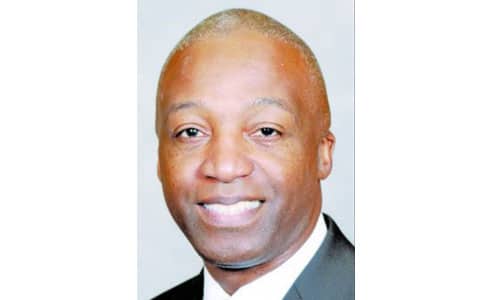By Clare Bratten
NASHVILLE, TN — “I believe it’s going to be Black folks–particularly Black elected officials–that are going to have to step up to save our nation and our democracy. Because it’s truly in peril,” said Georgia Representative Billy Mitchell, speaking to a gathering of Black legislators from across the South who met in Nashville the week of July 12th.
The roundtable discussion with the Black Elected Leadership of the Southern States was hosted by The National Organization of Black Elected Legislative Women (NOBEL Women) and the National Black Caucus of State Legislators (NBCSL) in conjunction with the 75th Annual meeting of the Southern Legislative Conference (SLC).
The urgency of the meeting was in response to voter suppression laws being drafted in many southern states. The group gathered to discuss strategies to oppose the systematic dismantling of voter rights in states across the South.
“At this point in history, we have black leadership across the country. We need to come together, we need to know who we are. We need to see what we’re experiencing – what we can do to help each other,” said Tennessee Representative Karen Camper pointing to the increasing numbers of elected officials who are minorities.
Also on the panel was Rev. Marcia L. Dyson, founder of the Women’s Global Initiative.
Rev. Dyson worried about the lack of unanimity among Black legislators.
“Sometimes even though we’re a Black collective, all the Black folks are not together. What are some of those deterrent factors that prohibit them not to be on board on this great ship of Zion rather than being on the Titanic which will crash?”
Rep. Camper replied that it was natural to feel alone as a Black legislator (working in a mostly white legislative environment) and forget to reach out to colleagues.
“We think we are by ourselves – it’s not a choice, it’s just natural. We could be a buffer for each other, get to know each other. It’s not that there is a division there, it’s just we need to reach out to each other. In all of these faith houses across the country we’re rising up in leadership. This is an opportunity. If we get together – you know what the power that is.”
When questioned whether protests by activists helped or harmed legislation proposed to shore up voter’s rights, or anti-discrimination legislation, or laws to address the welfare of the Black community, the lawmakers agreed that protests were part of the strategy sometimes needed to get changes in laws. Senator Tonya Anderson argued that both were needed. Anderson is Chair of the Georgia Legislative Black Caucus (GLBC) and as Secretary of the Senate Special Judiciary Committee for Georgia.
“The power is in both – the protests and the legislation. You can work with one hand and fight with the other. Even at the table making creative laws, we can support protests without having to be there. We can’t do this work alone,” Sen. Anderson said.
Rep. Bobby B. Dubose of Florida House of Representatives characterized some of the Republicans as James Crow Esq. “Jim Crow’s son – he has a suit on and carries a briefcase.”
“We went into Florida dealing with these Jim Crow 2.0 laws. You know they [conservatives] have the votes – we need to operate in the spirit of MLK–we may not see it, we’re doing it for the future. We reached out to League of Women Voters – our main objective is — whatever egregious legislation is passed, there is going to be a lawsuit [to oppose it]. We have to have all-hands-on-deck. We can set policy, get it passed – but the policy is up for interpretation, and who’s interpreting it. . . We have to understand that protest is a part of it. What’s going on is so national – black folks have to come together,” said Dubose.
There was general agreement that Black legislators needed to build stronger coalition and work together across the nation through organizations like the National Black Caucus of Southern Legislators.
“NBCSL serves the needs of black legislators of states, possessions and commonwealth. Forty percent of the current congressional black caucus are former members of NBCSL. The 44th president of these United States was an active member of NBCSL. If I had known that he was going to turn out to be the Barack Obama, I would have formed a better relationship with him,” said Rep. Billy Mitchell.
The meeting was chaired by Harriet V. Wallace, the first African American to produce and host a program every Saturday morning on Fox News in Nashville.


